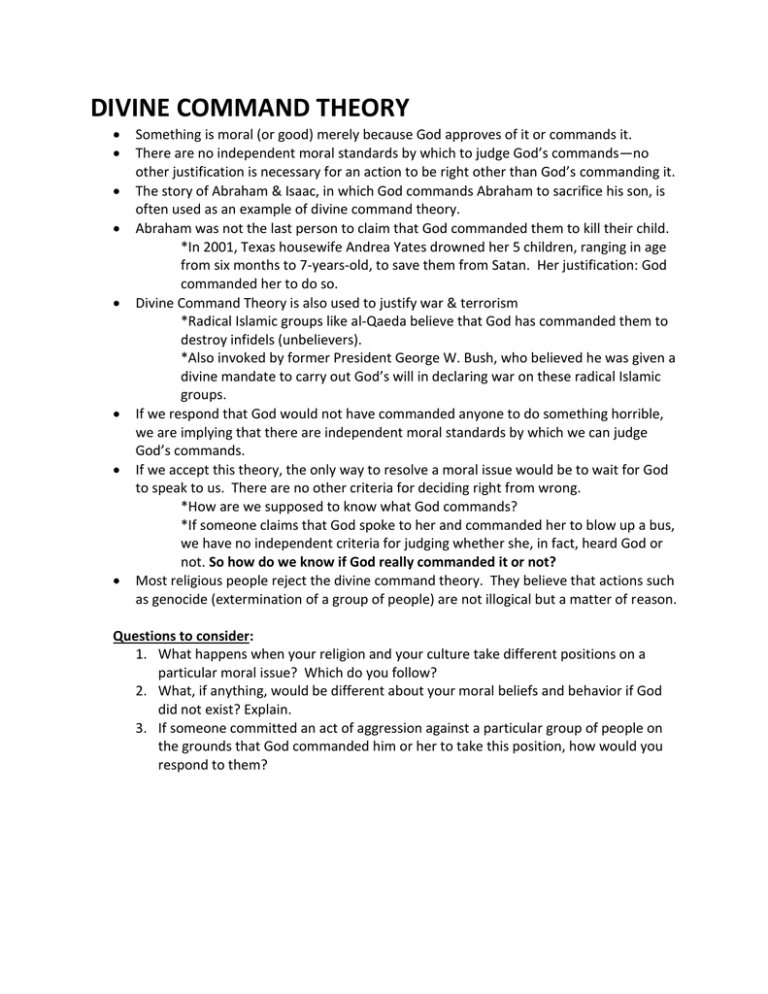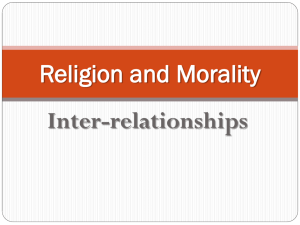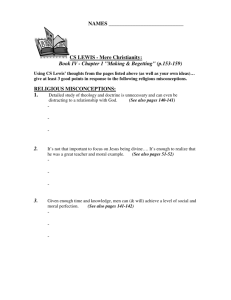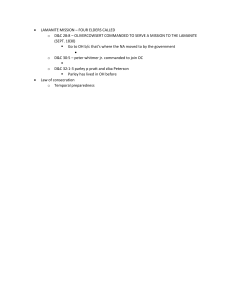Divine Command Theory
advertisement

DIVINE COMMAND THEORY Something is moral (or good) merely because God approves of it or commands it. There are no independent moral standards by which to judge God’s commands—no other justification is necessary for an action to be right other than God’s commanding it. The story of Abraham & Isaac, in which God commands Abraham to sacrifice his son, is often used as an example of divine command theory. Abraham was not the last person to claim that God commanded them to kill their child. *In 2001, Texas housewife Andrea Yates drowned her 5 children, ranging in age from six months to 7-years-old, to save them from Satan. Her justification: God commanded her to do so. Divine Command Theory is also used to justify war & terrorism *Radical Islamic groups like al-Qaeda believe that God has commanded them to destroy infidels (unbelievers). *Also invoked by former President George W. Bush, who believed he was given a divine mandate to carry out God’s will in declaring war on these radical Islamic groups. If we respond that God would not have commanded anyone to do something horrible, we are implying that there are independent moral standards by which we can judge God’s commands. If we accept this theory, the only way to resolve a moral issue would be to wait for God to speak to us. There are no other criteria for deciding right from wrong. *How are we supposed to know what God commands? *If someone claims that God spoke to her and commanded her to blow up a bus, we have no independent criteria for judging whether she, in fact, heard God or not. So how do we know if God really commanded it or not? Most religious people reject the divine command theory. They believe that actions such as genocide (extermination of a group of people) are not illogical but a matter of reason. Questions to consider: 1. What happens when your religion and your culture take different positions on a particular moral issue? Which do you follow? 2. What, if anything, would be different about your moral beliefs and behavior if God did not exist? Explain. 3. If someone committed an act of aggression against a particular group of people on the grounds that God commanded him or her to take this position, how would you respond to them?







